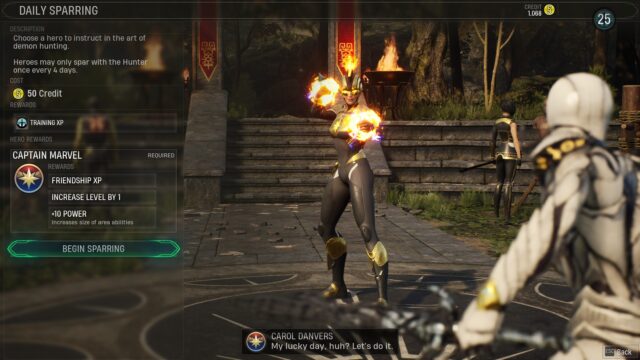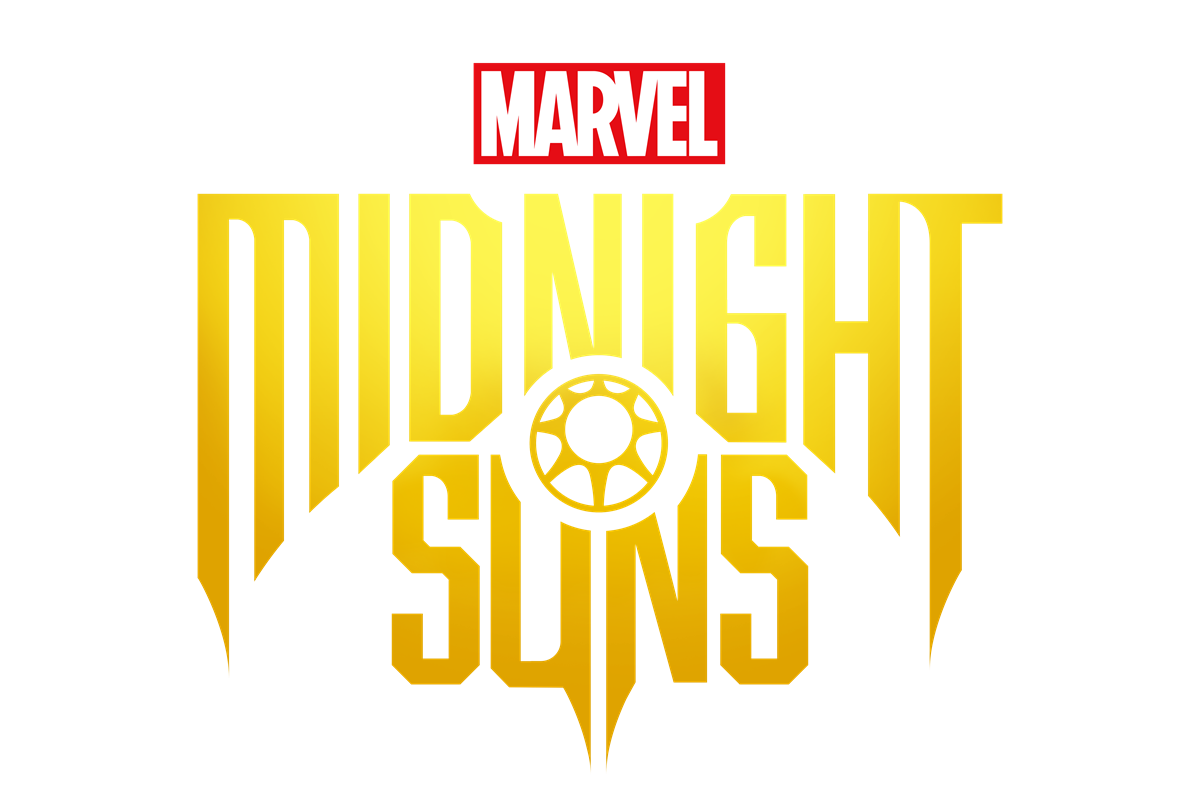Marvel’s Midnight Suns Review
Avengers Assemble and Chill Out
Despite having spent the better part of the preceding decade growing into one of the largest film franchises in the world, the same can’t be said about Marvel’s efforts in video games. While some attempts have born worthwhile fruit, the company has not found nearly the same level of critical and commercial success. Enter Marvel’s Midnight Suns, the most recent attempt to make a big budget game set in the Marvel universe and one that brings Firaxis Games into the fold. What the team that brought back XCOM brings to the table is a unique take on the Marvel universe while also being a great tactics game at its core.
Midnight Suns begins with HYDRA scientist Doctor Faustus attempting to resurrect the demon Lilith in the hopes she can help HYDRA in its attempts to conquer the world. Unable to stand against her on their own, the Avengers team up with fellow superhero team the Midnight Suns. Their ace in the hole is the Hunter, Lilith’s child and the only one who can hope to match her. However, the Hunter does not return at full strength, so while they recover their strength, the Avengers and the Midnight Suns must help the Hunter defend against Lilith’s machinations, while also trying to keep the clashing sensibilities of the superheroes from tearing the two teams apart.
As a story, Midnight Suns is a bog-standard team-up of clashing personalities, with a heavy dose of self-insert protagonist. Famous Marvel heroes like Iron Man and Captain America will constantly talk up the player about how cool they are to an almost ridiculous degree. The plot takes predictable twists and turns and the friends made along the way will be important to resolving the conflict. Despite its predictable nature, it’s surprising how well it works. Midnight Suns‘ cast of characters is incredibly likeable and endearing. The characters’ performances, interactions, and dialogue are some of the best parts of the game. The game captures the perfect hangout feel reminiscent of BioWare’s best days, effectively comprising half of the game’s addicting loop.
The other half of that loop is Midnight Suns’ unique combat. Broken up into svelte tactical missions, the twist here is that each of the heroes are controlled by cards. These cards are drawn from a deck of twenty-four, eight for each hero in the mission, with an initial six-card hand. Three cards can be played each turn, creating a decision space that has just the right level of restriction and freedom to allow for some clever plays. The game does an excellent job of making each of the heroes feel unique and a step in power above most enemies they fight. While advanced enemies have health bars, grunts are defeated by the first instance of damage. However, thanks to the limited number of actions per turn, players have to make efficient use of the heroes’ abilities.
While there are plenty of straightforward actions available to choose from, a greater importance is placed on positioning of heroes and enemy units alike. Since many abilities and environmental hazards only affect a certain area, moving pieces on the board is the most persistent tool in the player’s arsenal. To reinforce this idea early on, players are given the ability to spend their one free move per turn to instead push one enemy a short distance. The result is an entertaining pinball machine, as enemies are flung into parts of the map, into one another, and even other heroes. Certain actions will also refund card plays as long as an opponent was defeated as part of the action. So rather than just hyper-focus on a single enemy at a time, turns become more about extending the number of combat actions to maximize efficiency. It’s a satisfying feeling to go from an overwhelming number of enemies at the start of a turn to entirely turning the tables by the end of it. Though there is an overall lack of mission variety — a handful of general missions will be played often, including disabling a vehicle within a set number of turns or defeating specific enemies — the real variety comes from the different party makeups possible, each requiring a different approach to mastering combat. Story missions excluded, the brief length of a mission does a good job of keeping the combat from becoming too burdensome while offering plenty of opportunities to try out different party members.
Out of combat there is plenty for players to engage with. The game’s hub, the Abbey, is home to the heroes and has surprisingly sprawling grounds filled with secrets to discover. It features options to improve characters through training and side missions, but more importantly the Hunter will form relationships with the other characters. Midnight Suns’ writing stands out most during these moments, each character being incredibly well-sketched and distinctive. If the game’s combat captures the heroic side of the cast, then the hangouts and various interactions capture their human moments in the manner of the best sitcoms. The surrounding grounds of the Abbey hide a good amount of the game’s backstory, though it can sometimes be a little difficult to remember where certain points of interest are. Most importantly, the Abbey contributes the integral downtime of the game’s addicting routine, the perfect pace to turn the brain off and just lounge around with the gang.
Given combat’s card-driven nature, the RPG elements in the game feel less at the fore. Characters gain experience and level up, which does increase their stats and makes them more powerful, but mission difficulty scales with time so more often than not smart card play is more important than raw stats. New cards are gained as mission rewards and can themselves be leveled up, but this is divorced from the character’s level. More important is the strength of the Hunter’s relationship with the other characters, as the stronger the relationship the more passive abilities they will gain, while the Hunter gains power from uncovering more mysteries around the Abbey. Story progress only happens at the player’s discretion, so it’s easy to run generated missions over and over again for resources, abilities, and opportunities to spend more time with other heroes, but players can’t make the game easier through sheer brute force. Fortunately, the game has a very generous number of difficulty modes, altering things like enemy health and damage. Higher difficulties reward more experience and Gloss, a currency that can be spent on cosmetic items and gifts for team members. The options are well-thought out and give the player a good amount of control over their level of friction.

The various heroes can take turns sparring with the Hunter to boost their friendship and give them bonuses.
It’s less fortunate then that Midnight Suns does run into a handful of technical issues, at least on the Steam Deck. Playing on the device saw the game run fine enough during the gameplay segments, but there were audio-syncing problems with most of the game’s dialogue. There weren’t any issues during missions, but during the Abbey segments with full 3D environments and higher quality character models, the Deck began running hot and with significantly reduced battery life. And this was on the lowest settings. It never got in the way of enjoying the game but was present throughout. It’s not the prettiest game in the world but the visuals get the job done and the game’s music quickly fades into the background. The game is also quite lengthy, even focusing on just the mains story could take tens of hours and that’s before accounting for how easy it is to just focus on side things to develop the party.
In spite of its technical issues, Marvel’s Midnight Suns is an easy recommendation to strategy and superhero fans or anyone who’s been missing the more traditional BioWare experience. Its tactical combat stands out in the genre and is consistently compelling. The plot is no great shakes but the characters are excellent renditions of decades-old favorites. It’s also a well-paced game, never getting bogged down in any one form of play for too long but free-form enough to allow for players to do that if they wish. Not only is Midnight Suns a great Marvel game, it’s a great game in its own right.


Novel and compact but nonetheless engaging battles
Fully rounded and entertaining cast of characters
Addicting gameplay loop that begs for just one more turn
Some technical issues present
While the writing is good, story is fairly generic








I played this in May and greatly enjoyed it. I only knew about it because my brother recommended it to me. Really under the radar / poorly marketed game from a major developer and massive franchise. Thanks for the review!